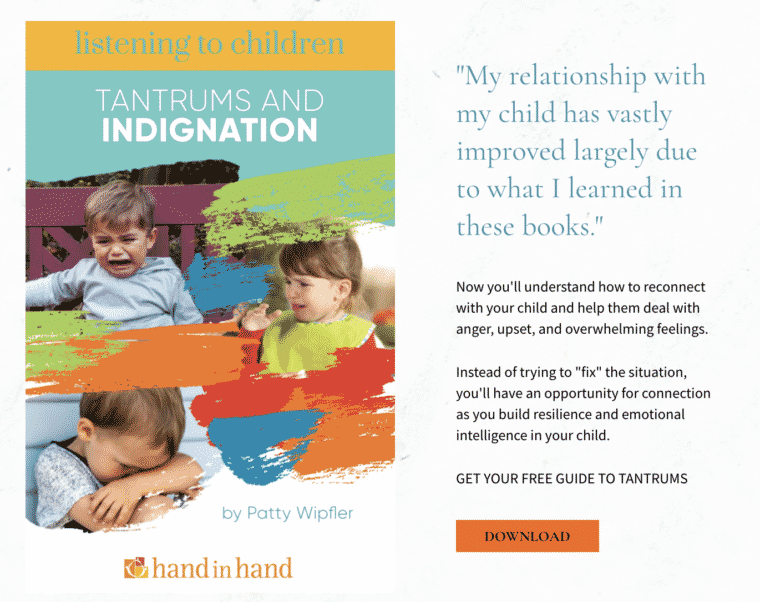Sleighbells ring, are you listening?
Unfortunately, probably not. That is, if you are shoulder-high in festive planning and your children are fighting over the last gingerbread.
Here's 18 sanity-saving tips for tackling those holiday stresses, so that you can keep your calm, feel resourced and enjoy the winter season.

1. Play Out Excitements
If the thought of presents, special foods or family gatherings have your children over-excited, plan to play off the energy before bedtime. That’s right! Rile them up, get the giggles going, get that release happening in a good way. Here’s two games to try from Hand in Hand Instructor Claire Rosina.
2. Take Down Your Kids' Stress
Decrease the stress for kids by connecting Christmas stories to unconditional love, says Cecilia Hilkey of Happilyfamily.com. “Sometimes the concept that Santa (or an Elf on the Shelf) “Knows if you’ve been bad or good” creates stress and worry for kids,” she says. “Using gifts as a bribe decreases the joy and lessens kid’s intrinsic motivation to be kind and loving to others.”
3. Go for Presence Over Presents
When our children have tantrums, or act ‘spoilt, or ‘entitled’ about the presents they want or disappointment they feel, remember that deep down what they are really craving is this most precious of gifts; time with you and your loving attention, says Kate Orson, writer of the book Tears Heal. Try loading up on Special Time over the holidays to bring back warmer behavior. Here's a checklist to help.
4. Create a Family Tradition
In our house, we started a tradition of unwrapping a book and reading it each night in December, says Hand in Hand Instructor and social worker, Suzy Heltzel. “I wrap the book in a special cloth that is used each night and my kids take turns opening it. Then we sit together and read. Each year I buy a couple more books but get the rest from the library to have 24 with some new ones they haven't seen. Rituals are connecting and the books are often meaningful,” Heltzel says. Head here for more ideas.
5. Use Listening Time
Get lots of advance listening time, advises Emilie Leeks of Journeys in Parenting. “There will always be things that don't go well—kids being disappointed about presents, family doing things in a different way, upset schedules—but if you can tackle some of your worries about these issues in advance (after all, if they happen every year they can often be predicted), you'll clear your thinking to respond in a more thoughtful, creative way,” she says.
6. Roleplay Tricky Situations
Roleplaying situations ahead of time can really help a child work through their challenging behavior.
If your child doesn't want to wait to open presents, or if they hate sitting up at the table, play around with the situations ahead of time. Wrap some fake gifts and have fun tossing them around, or play music and pass the parcel, unwrap a gift, layer by layer, when the music stops. If sitting up is the issue, have a “stern tea party” where you act strict but break all the rules, or set dinner up in a really unlikely place. Or have your child beg you to come sit.
This type of play works best with two ingredients: Your child has a more powerful role than you – so let them make decisions or direct play once you set it up – and follow their giggles. If they are laughing, they are working through light fears.
Here's more on using this playlistening tool to release tension.
7. Lose the Magic
“Avoiding hype has really helped us,” says Roma Norriss, of Birthing A Better World. “I've offloaded feelings about Christmas, about wanting it to be really magical, about the disappointment of discovering there was no Santa and I was able to let go of a lot of the hype around Christmas during my listening partnerships. We told our children that Father Christmas does not exist. We also told our son with special needs exactly what his present was going to be. It was exciting enough for him and as he experiences excitement as anxiety it was actually kinder to take some of the mystery (and, arguably, some of the magic) out of the equation,” she says.
8. Forget the “Should”
The holiday season can be a time for parents and children to get their inner cups filled through family time, rituals, festivities, presents, and treats, says Psychologist Larry Cohen, author of Playful Parenting. But the disruption of routines, too much togetherness, dysfunctional family dynamics, obligatory parties, competitiveness, the wrong presents and too many treats can just as easily empty our cups.
Don't get caught up in ‘shoulds', he says. “You may believe that family time ‘should' feel wonderful, but in fact it is stressful, and the fact is more important than the should. You and your children are going to need extra attention to fill everyone's cup, so try not to be frustrated because they weren't filled when they ‘should' have been.”
Larry's favorite way to refill cups fast? Try DEAP, he says: Drop Everything and Pillowfight, or two minutes of emergency Special Time for everyone, including you!
9. Set Limits Quickly
When your child has gone off-track and you sense they are getting whiny, don’t wait for them to attack a sibling with a wooden block before you step in, says Tears Heal author Kate Orson. Read How to Set Limits in Five Words or Less if you are new to loving limits.
10. Handle Tantrums With a Plan
You probably know that fun, excitement and added attention often results in children's crying sessions. (We call it Spoiled Outing Syndrome), so plan for how you want to deal with the upsets. Hand in Hand's Isabela Budușan's family don't enjoy it when her children cry. “I will take them to another room or I will go to our floor (we live above my family) so I can listen to them cry there,” she says. “So, when my father-in-law says, “Stop now, what is this crying all about?” I'll say, “It's ok, I'll handle this,” and I take the charge of the situation.”
Got tantrums to tame? Get this guide to Tantrums and Indignation now.
11. Build Connection Before Dinner
There's nothing like sitting at a table full of family to bring out bad manners – for adults and kids. Assign any family members not involved in kitchen prep to connect with a child. Ask those relatives to play what the children want to play, watch what they are watching, or simply join their conversations. When dinner is called have them beg to sit next to the child. You'll enter dinner with high connections that helps with co-operation.
12. Let Them Be Heard
Give indirect Listening Time to friends and relatives to ‘warm them up' and get them feeling good about themselves. Making a conscious effort to listen to them, even if they don't know about or do Listening Partnerships themselves, gives your loved ones the unique gift of being heard, says Hand in Hand's Franciska Kis-Marton.
13. Just say NO! (Politely, and with a smile!)
“Learning to say “No!” with a smile might just be the smartest holiday sanity saver for you, your child and your whole family,” says Elisa Song, MD of Healthy Kids, Happy Kids.
It buys you more time to breathe, more time to sleep, more time to make healthy food choices and exercise, more time to spend with your children. Learning how to say “No!” is good for your body, mind, and spirit!
14. Play ‘Quirky Habits Bingo'
“Personally, I love this tip from Larry Cohen on dealing with relatives whose habits are hard to handle,” says The Connected Parent's Rachel Schofield. Draw up a bingo sheet, but instead of numbers enter your relatives' quirky habits and cross off that particular square when they exhibit the behaviour. “It's a great way to help you laugh about those button-pressing moments letting you release a little bit of tension and see them more lightly,” she says.
15. Play Family Connection Games
You might be grateful if you're able to meet with family this year, but that doesn't mean it will be easy or carefree. Try getting rid of bad feelings with big belly laughs. Games that include grown-ups and kids work wonders for dissipating tension. Tag, dodgeball, hide and seek all work, or just make something up, like our instructor Irina’s son did in this post.
16. Be Rude, Have Fun!
When your kids say silly stuff or become insulting, try playfully joining them! Kids use these tactics as a way to draw attention when they've become disconnected or overwhelmed. In the book, Listen, Five Simple Tools to Meet Your Everyday Parenting Challenges, authors Patty Wipfler and Tosha Schore tell the story of a parent who takes her young nephews into a quiet room for a “Bad Manners” contest. “We burped, blew bad breath, made farting noises,” she says, and laughed all that tension away.
17. Imagine Someone is Listening
If you can’t get to the phone or have no time for a full out listening session, message your listening partners with a mini rant, and imagine that they are listening, says Emilie Leeks at Journey's in Parenting.
18. Take a minute
“When we spend five minutes taking care of ourselves – either a brisk walk to the mailbox, sitting for five minutes focusing on our breath, or drinking a single cup of coffee all the way to the bottom before it cools off – it directly affects our ability to parent from a place of peace, love and compassion—and it models for our children that it's important to consider our own needs,” says ParentingBeyondPunishment’s Amy Bryant.
What will you do this year to keep connected over the holidays?
Read up on why holidays cause meltdowns and how to take the drama down this year.
For more parenting help through the holidays, read ‘Tis The Season To Be…Disappointed!
You might also like Five Ways to Prevent Public Meltdowns and Tantrums
Help for tantrums:
You'll never guess what happens when you don't shush, divert or reason with your child when they tantrum. This guide shows you how to help your child feel better quickly (and even stop tantrumming so much) when you do just one simple thing.
Download your guide here now.

